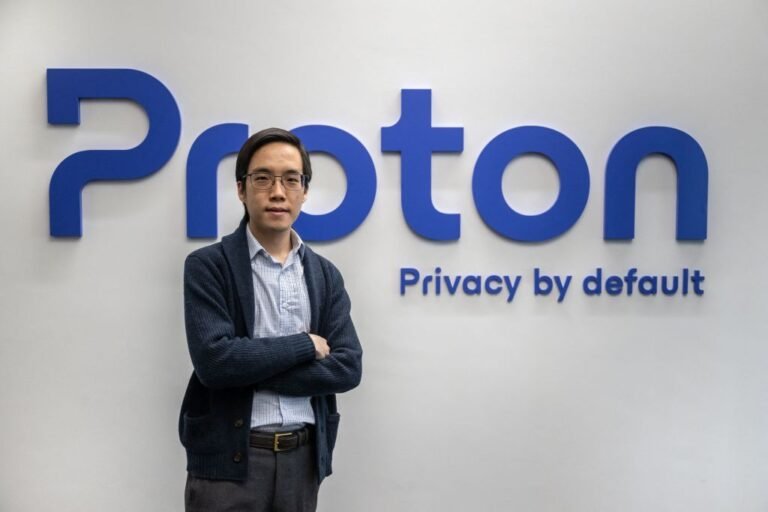Switzerland-based Proton, the privacy-focused company behind encrypted end-to-end (E2EE) web email ProtonMail and other applications, has acquired Standard notesa note-taking app founded in 2017. It offers the same kind of strong privacy promise to its 300,000+ users, also implementing E2EE.
In a press release announcing the move, Proton highlighted the pair’s “shared values”, including the use of E2EE. commitment to open source technology; and how neither has relied on venture capital to drive development.
E2EE is considered the gold standard of security technology as service providers do not own encryption keys. This means they are technically unable to decrypt user data, protecting user content behind a so-called “zero-knowledge” architecture. In other words, you don’t have to trust your service provider not to spy.
By adding Standard Notes to its app portfolio, Proton will deepen its reach with an engaged community of privacy-supporting users, offering additional cross-selling opportunities as well as enhancing the utility of its app ecosystem.
The note-taking app fills an obvious gap in Proton’s current lineup.
Proton applies its flagship E2EE promise of strong security to a suite of products including email, calendar and cloud storage. In addition, it offers a VPN service. Last year it launched its own pro-privacy and anti-censorship CAPTCHA service to further round out its offerings, but until now it didn’t have a dedicated note-taking app.
A key aspect of the pair’s “community-centric” approach is a freemium strategy that aims to support wider access to products through premium (paid) users that effectively subsidize free users. And while there is some overlap in usage, a Proton spokesperson said less than a quarter of Standard Notes users are already Proton users. So there is room for cross-selling and further community building.
Proton said the Standard Notes app, which is available for both mobile and desktop, will remain “open source, freely available and fully supported.”
He also suggested that there would be no change in the prices of the Standard Notes. Its press release clarifies that existing five-year memberships “will continue to be honored.”
“Standard Notes will remain an independent product and in due course both companies will open access to their products to each other’s users,” Proton added.
Commenting in a statement, Mo Bitar, founder and CEO of Standard Notes, spoke of the sense of shared mission. “At Standard Notes, for the past seven years we’ve strived to create a place where people are free to think and write without worrying that someone is looking over their shoulder. This freedom is incredibly rare on the internet today and something we want to preserve forever,” he wrote.
“To be able to do this, we are excited to join forces with Proton – one of the few organizations that share our ethos and is not only mission-driven but also open source, self-sustaining and community-focused. In Proton, we have found a partner who shares our laser focus on protecting privacy.”
Proton was founded in 2014, but Standard Notes is only the second company it has acquired. On the contrary, thisIt mainly focuses on manufacturing products in-house to expand its range and increase its usage (a year ago was announced passing 100 million users). This includes the development of its first acquisition — e-mail moniker startup SimpleLogin, which it acquired in 2022 — as well as the development and launch of comprehensive password management app Proton Pass in June.
In that case, Proton relied on the SimpleLogin team it acquired for most of the product development. So the company is apparently not allergic to user acquisition and other integration-based growth opportunities, where it sees plenty of philosophical overlap plus an opportunity to deepen its technical bank.
As it folds Standard Notes into its fold, Proton aims to repeat the trick, saying it expects the Standard Notes team to “vitally contribute to building and improving Proton’s ecosystem for existing and future products.” The broader goal is to advance the shared “mission” of “building a better Internet where privacy is the default,” as its PR puts it.
“The deal is a strategic decision designed to benefit users by bringing to market secure, easy-to-use, private products that everyone can access,” Proton wrote. “Standard Notes and Proton engineers will begin working together immediately to ensure that their combined skills and experience bear fruit for users as soon as possible.”
Proton founder and CEO Andy Yen confirmed that the respective apps use different encryption schemes. “But that’s not really a problem for integration, since it’s a separate app, he told TechCrunch. “At a later point, we may make accounts interoperable so that a Proton The account can also be logged into Standard Notes and vice versa, as we did with SimpleLogin.”
Asked about the viability of pro-privacy business models that don’t rely on exploiting user data — when so much of mainstream technology is still moving in the opposite direction, data mining — Yen stressed the need for long-term thinking by privacy startups. And for screwing courage where it sticks.
“Competing with Big Tech is perhaps the most difficult business challenge that exists today because of the unfair and abusive tactics used by the tech giants to block competitors,” he said. “While recent actions such as the EU’s Digital Markets Act or the Justice Department’s lawsuit against Apple may eventually level the playing field, it will take many years. It’s a critical step in the right direction, but it won’t have an immediate impact.”
“That means you have to be a little crazy to take on this challenge today, and the only way to do it long-term is to do it for the right reasons. The goal cannot be short-term or even medium-term financial results, as these are likely to be difficult to achieve. Instead, you have to be mission-driven enough to survive the brutally difficult long game.”
The financial terms of the acquisition are not disclosed.
